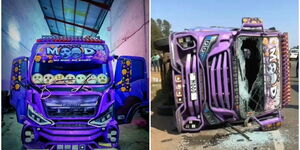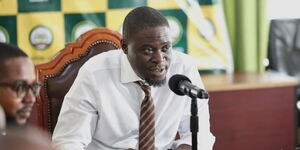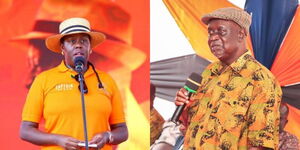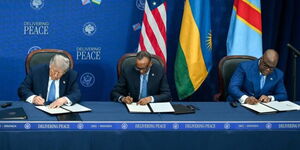With President William Ruto's administration's insistence on sending 1,000 Kenyan troops to aid troubled Haiti, we turn our attention to the intricate history of gang violence in the Caribbean nation and other challenges they will face.
As Kenya pledges support to tackle the crisis gripping Port-au-Prince and beyond, questions arise over the feasibility of disarming entrenched gangs in Haiti's volatile landscape.
There are believed to be about 200 armed gangs operating in Haiti, about half of which have a presence in Port-au-Prince. In the capital, there are two major gang coalitions.
The first, the G9 Family and Allies Alliance, or simply G9, is led by Jimmy “Barbecue” Cherizier, a former Haitian police officer who is under UN and United States sanctions for his involvement in Haiti’s violence.
Haiti's history is deeply intertwined with the proliferation of gangs, dating back to oppressive regimes such as François "Papa Doc" Duvalier's dictatorship from 1957 to 1971.'
Gangs have historically been utilised by political leaders for protection and to advance their own agendas, perpetuating a cycle of violence and instability.
Since the early 1900s, Haiti has been subject to numerous direct interventions, including a prolonged occupation by US forces from 1915 to 1934. This occupation, ostensibly aimed at restoring political stability following the assassination of then-President Vilbrun Guillaume Sam, witnessed widespread human rights abuses and the implementation of forced labour systems.
During the Cold War era, the US intervened in Haiti by supporting governments aligned with its interests. Despite facing allegations of human rights violations, leaders like François Duvalier received significant financial backing from the US.
Moreover, direct military interventions, such as the deployment of troops to reinstate President Jean-Bertrand Aristide to power in 1994, added complexity to Haiti's political landscape.
Daniel Foote, former US special envoy to Haiti, highlights that armed groups, initially established to empower ordinary Haitians, gradually morphed into instruments of coercion and exploitation, exacerbating the security crisis further.
The dissolution of the Haitian military under Aristide's rule contributed to the proliferation of armed factions, leading to a surge in gang violence.
The assassination of President Jovenel Moïse in 2021 intensified the power vacuum, resulting in a surge in gang violence and further destabilising the nation. Ariel Henry, the designated prime minister, faces challenges in asserting authority amidst accusations of collusion with gangs.
Haiti's inability to establish a robust military and its weak police force exacerbates the challenges of confronting well-armed gangs.
With an estimated 20,000 to 30,000 gang members compared to a police force of around 15,000, law enforcement struggles to maintain control in areas dominated by gangs like G9, led by Jimmy "Barbecue" Chérizier.
Corruption within Haiti's state structure further complicates efforts to address gang violence. Rampant corruption, coupled with economic challenges and political instability, undermines governance and security provision.
While international assistance is crucial, concerns persist over the potential ramifications of foreign intervention and the constitutionality of Kenya's deployment.
Amidst these challenges, Kenya's commitment to aiding Haiti is not a popular decision at home. President Ruto is however pressing on the decision to send the troops, with civil society and opposition parties accusing Ruto of seeking financial gain from the crisis.
They say that the Haitian deployment violates the constitution and that the mission necessitates the use of a military force rather than police officers.
In October, the UN Security Council authorised a multinational security support mission in response to deadly gang violence in Haiti. Kenya agreed to lead the expedition, but the high court delayed soldier deployment in January after determining that a reciprocal agreement with Haiti was required.
President Ruto bypassed the judge's verdict by signing a reciprocal agreement with Haiti on March 1, witnessed by the country's Prime Minister Ariel Henry during his visit to Nairobi.
However, Henry was unable to return to Haiti due to the rapidly deteriorating security situation. Consequently, he felt compelled to announce his resignation a few days later, expressing his intention to step down once a transitional council was established.












